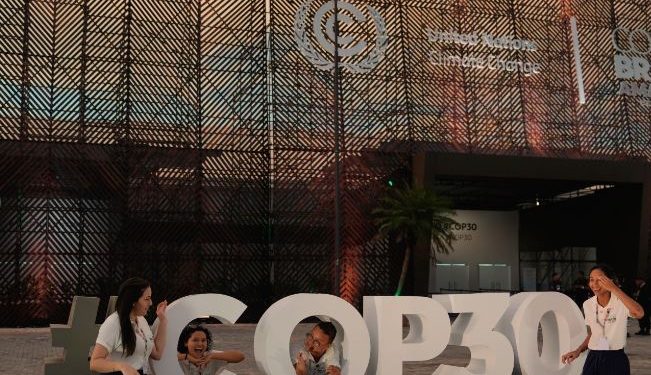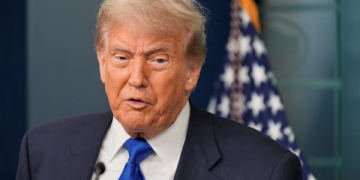Belem: The draft agreement for the COP30 climate summit has hit a major roadblock after the European Union rejected a text that dropped any reference to transitioning away from fossil fuel use, leaving host nation Brazil’s hopes for a strong consensus in jeopardy.
The two-week meeting in the Amazon city of Belem was due to conclude Friday evening, but negotiations stretched into the night as delegates grappled with deep divisions over energy, emissions and climate finance.
Brazil had presented a draft before dawn Friday that omitted earlier language committing to a pathway for phasing out fossil fuels. Many major oil- and gas-producing countries opposed that language, prompting its removal from the text.
The EU, however, said the draft was too weak. “Under no circumstances are we going to accept this,” EU Commissioner for Climate Wopke Hoekstra declared, adding the bloc might consider walking out rather than accepting an inadequate deal.
At the same time, some developing-country negotiators argued that any fossil-fuel transition pathway must be complemented with a clear plan for climate finance: “If there is a pathway for fossil fuel, there has to be a pathway for climate finance as well,” one negotiator said.
One delegate from the Arab Group, which includes Saudi Arabia and the UAE, made clear that energy-industry provisions would be unacceptable. In a closed-door session, the group warned that targeting its oil and gas industries would collapse the negotiation.
Meanwhile, the draft retained a call for tripling adaptation finance by 2030 from 2025 levels, but offered little specificity on funding sources or how much must come from wealthy nations.
With nearly 200 countries present, any agreement requires consensus. The deadlock over fossil fuels and finance underscored longstanding struggles within multilateral climate diplomacy, where consensus is both a strength and a recurring barrier.
With the EU holding out and other major blocs reluctant to accept the weakened text, Brazil’s presidency appeared resigned to making only small procedural adjustments. A side-deal on fossil fuels was reportedly under discussion, but it would not have the force of a full COP consensus decision.
COP30 host President Cyril Ramaphosa said in a statement that a show of multilateral unity remains important even with the U.S. absent from the summit’s key events.
As the deadline loomed, negotiators recognised the wider implication: failure to deliver a clear roadmap for fossil-fuel transition and climate finance may weaken global momentum for cutting emissions at the critical moment.






































